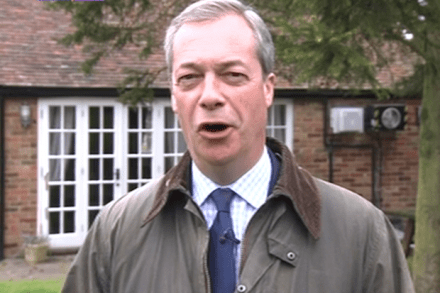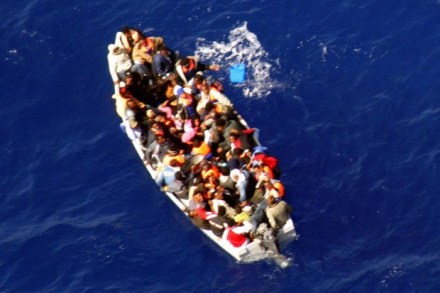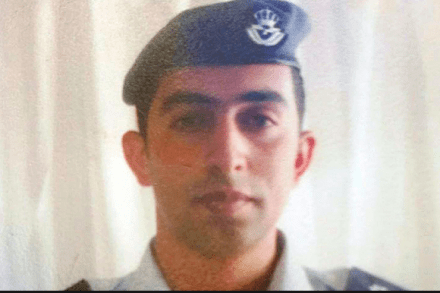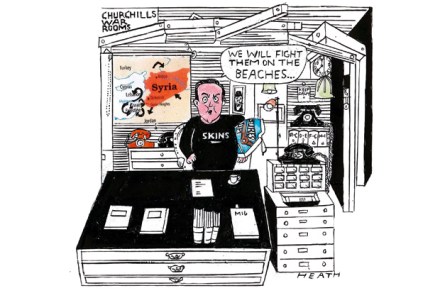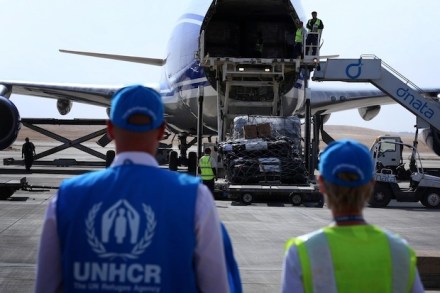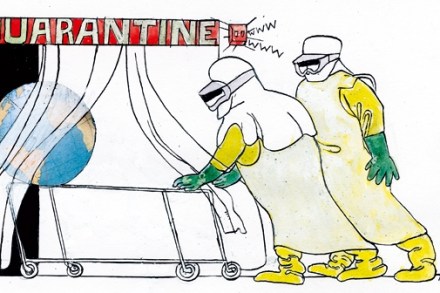Nigel Farage: David Cameron’s ‘fanaticism’ is to blame for Libya migrant crisis
Nigel Farage tends to stick to one line on foreign affairs: no more foreign wars. On the Sunday Politics today, the Ukip leader claimed that the migrant crisis and tragedies in the Mediterranean are the fault of countries such as Britain and France who bombed Libya in 2011: ‘Actually, it was the European response that caused this problem in the first place — the fanaticism of Sarkozy and Cameron to bomb Libya and what they’ve done is to completely destabilize Libya; to turn it into a country with much savagery; to turn it into a place where for Christians the situation is now virtually impossible and we ought to be honest and say
